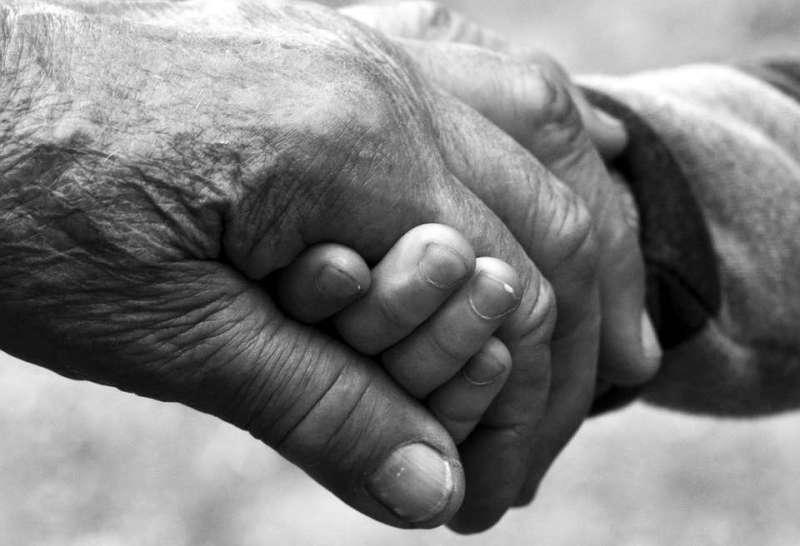Use of cognitive abilities to care for grandkids may have driven evolution of menopause

Instead of having more children, a grandmother may pass on her genes more successfully by using her cognitive abilities to directly or indirectly aid her existing children and grandchildren. Such an advantage could have driven the evolution of menopause in humans, according to new research published in PLOS Computational Biology.
Women go through menopause long before the end of their expected lifespan. Researchers have long hypothesized that menopause and long post-reproductive lifespan provide an evolutionary advantage; that is, they increase the chances of a woman passing on her genes. However, the precise nature of this advantage is still up for debate.
To investigate the evolutionary advantage of menopause, Carla Aimé and colleagues at the Institute of Evolutionary Sciences of Montpellier developed computer simulations of human populations using artificial neural networks. Then they tested which conditions were required for menopause to emerge in the simulated populations.
Specifically, the research team used the simulations to model the emergence and evolution of resource allocation decision-making in the context of reproduction. Menopause can be considered a resource allocation strategy in which reproduction is halted so that resources can be reallocated elsewhere.
The researchers found that emergence of menopause and long post-reproductive lifespan in the simulated populations required the existence of cognitive abilities in combination with caring for grandchildren. The importance of cognitive abilities rather than physical strength lends support to a previously proposed hypothesis for the evolution of menopause known as the Embodied Capital Model.
"Cognitive abilities allow accumulation of skills and experience over the lifespan, thus providing an advantage for resource acquisition," Aimé says. "Stopping reproduction during aging allows allocating more of these surplus resources to assist offspring and grand-offspring, thus increasing children's fertility and grandchildren's survival."
More information: Aimé C, André J-B, Raymond M (2017) Grandmothering and cognitive resources are required for the emergence of menopause and extensive post-reproductive lifespan. PLoS Comput Biol 13(7): e1005631. doi.org/10.1371/journal.pcbi.1005631
Journal information: PLoS Computational Biology
Provided by Public Library of Science




















